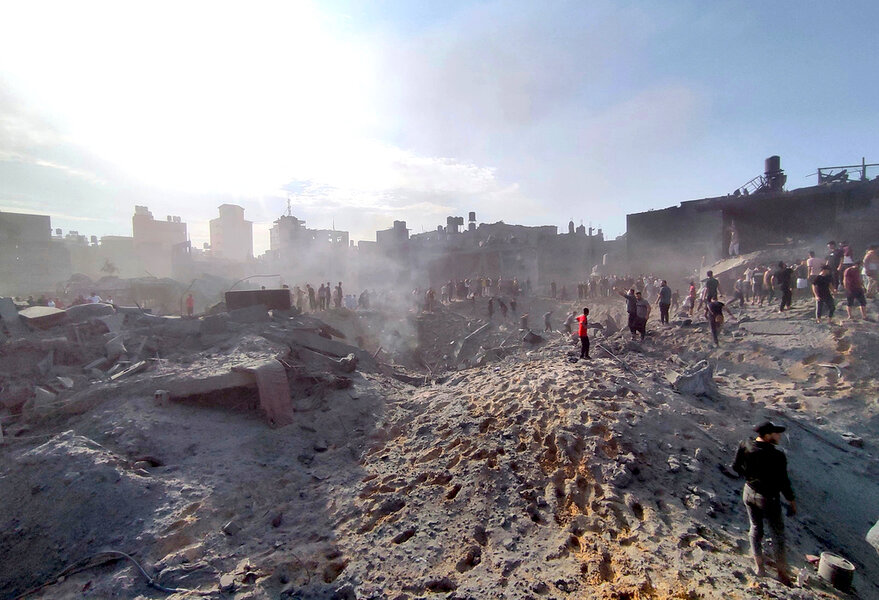For Palestinians in Gaza, a coming choice
A new survey of 173 countries might be a helpful guide for the coming decision on who will rule the Gaza Strip if Israel’s military takes over the enclave of 2 million Palestinians. While the survey, by a Sweden-based think tank, confirms a steady decline in democracy worldwide, it also notes a countervailing trend – or “green shoots” – in a number of places where citizens have lately achieved lower levels of corruption.
For Palestinians in Gaza, such a hopeful sign of the irrepressible desire for clean governance could be a starting point in creating a new democracy.
Polls bear this out. Just months before the Oct. 7 attack on Israel by Hamas, an opinion survey found that 73% of Gaza residents believed the Hamas government to be corrupt. And that percentage had been rising, which may help explain one possible reason why the Islamist group launched the attack on Israeli civilians to provoke a response. After previous conflicts with Israel, Hamas’ popularity rose, even if temporarily, until Palestinians in Gaza again noticed corruption in their public institutions.
A poll of Gaza residents earlier this year, done by the Palestinian Center for Policy and Survey Research, found that 25% saw corruption as the first problem in their society. That is behind only the 38% who said the establishment of a Palestinian state should be the first goal.
“The vast majority of Gazans have been frustrated with the armed group’s ineffective governance as they endure extreme economic hardship. Most Gazans do not align themselves with Hamas’s ideology,” wrote Amaney Jamal and Michael Robbins, scholars at Princeton University, in Foreign Affairs last month.
The global survey on democracy, conducted by the International Institute for Democracy and Electoral Assistance, found anti-corruption efforts increasing in countries as diverse as Zambia and Ukraine. Much of that progress comes from informal actors who provide checks and balances on government, such as journalists, election organizers, and anti-graft activists.
Since the approval in 2003 of the United Nations Convention Against Corruption, the world has “united around a common vision for integrity, transparency, and accountability,” Ghada Waly, executive director of the U.N. Office on Drugs and Crime, said last month. Those qualities, she added, “are essential safeguards to protect the values of democracy, preserve the rights of everyone, and prevent breakdowns in the rule of law.”
Palestinians in Gaza, too, can rely on such safeguards to build a resilient state that commands both legitimacy and accountability.





